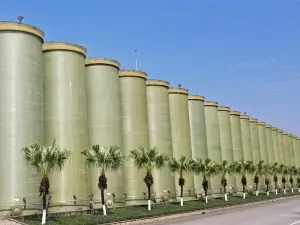
-
 Afrikaans
Afrikaans -
 Albanian
Albanian -
 Amharic
Amharic -
 Arabic
Arabic -
 Armenian
Armenian -
 Azerbaijani
Azerbaijani -
 Basque
Basque -
 Belarusian
Belarusian -
 Bengali
Bengali -
 Bosnian
Bosnian -
 Bulgarian
Bulgarian -
 Catalan
Catalan -
 Cebuano
Cebuano -
 China
China -
 China (Taiwan)
China (Taiwan) -
 Corsican
Corsican -
 Croatian
Croatian -
 Czech
Czech -
 Danish
Danish -
 Dutch
Dutch -
 English
English -
 Esperanto
Esperanto -
 Estonian
Estonian -
 Finnish
Finnish -
 French
French -
 Frisian
Frisian -
 Galician
Galician -
 Georgian
Georgian -
 German
German -
 Greek
Greek -
 Gujarati
Gujarati -
 Haitian Creole
Haitian Creole -
 hausa
hausa -
 hawaiian
hawaiian -
 Hebrew
Hebrew -
 Hindi
Hindi -
 Miao
Miao -
 Hungarian
Hungarian -
 Icelandic
Icelandic -
 igbo
igbo -
 Indonesian
Indonesian -
 irish
irish -
 Italian
Italian -
 Japanese
Japanese -
 Javanese
Javanese -
 Kannada
Kannada -
 kazakh
kazakh -
 Khmer
Khmer -
 Rwandese
Rwandese -
 Korean
Korean -
 Kurdish
Kurdish -
 Kyrgyz
Kyrgyz -
 Lao
Lao -
 Latin
Latin -
 Latvian
Latvian -
 Lithuanian
Lithuanian -
 Luxembourgish
Luxembourgish -
 Macedonian
Macedonian -
 Malgashi
Malgashi -
 Malay
Malay -
 Malayalam
Malayalam -
 Maltese
Maltese -
 Maori
Maori -
 Marathi
Marathi -
 Mongolian
Mongolian -
 Myanmar
Myanmar -
 Nepali
Nepali -
 Norwegian
Norwegian -
 Norwegian
Norwegian -
 Occitan
Occitan -
 Pashto
Pashto -
 Persian
Persian -
 Polish
Polish -
 Portuguese
Portuguese -
 Punjabi
Punjabi -
 Romanian
Romanian -
 Russian
Russian -
 Samoan
Samoan -
 Scottish Gaelic
Scottish Gaelic -
 Serbian
Serbian -
 Sesotho
Sesotho -
 Shona
Shona -
 Sindhi
Sindhi -
 Sinhala
Sinhala -
 Slovak
Slovak -
 Slovenian
Slovenian -
 Somali
Somali -
 Spanish
Spanish -
 Sundanese
Sundanese -
 Swahili
Swahili -
 Swedish
Swedish -
 Tagalog
Tagalog -
 Tajik
Tajik -
 Tamil
Tamil -
 Tatar
Tatar -
 Telugu
Telugu -
 Thai
Thai -
 Turkish
Turkish -
 Turkmen
Turkmen -
 Ukrainian
Ukrainian -
 Urdu
Urdu -
 Uighur
Uighur -
 Uzbek
Uzbek -
 Vietnamese
Vietnamese -
 Welsh
Welsh -
 Bantu
Bantu -
 Yiddish
Yiddish -
 Yoruba
Yoruba -
 Zulu
Zulu
Understanding the Design and Functionality of FRP Weirs in Water Management Systems
Understanding FRP Weirs A Modern Approach to Water Management
FRP, or Fiber Reinforced Polymer, has emerged as a revolutionary material in various engineering applications, particularly in water management systems. Among the most prominent applications of FRP is in the construction of weirs, which are barriers installed across open channels to regulate water flow, create a drop in water levels, and measure flow rates. The use of FRP for constructing weirs offers several advantages over traditional materials like concrete and metal, bringing forth enhanced durability, lower maintenance costs, and improved hydraulic performance.
What is a Weir?
A weir is essentially a structure that allows water to flow over it, facilitating the measurement and management of water levels in rivers, channels, and reservoirs. Weirs can take various forms, including sharp-crested, broad-crested, and V-notch designs, depending on their purpose. They are crucial in hydrology and civil engineering because they help prevent flooding, manage irrigation, and monitor aquatic ecosystems.
Advantages of FRP Weirs
1. Durability and Corrosion Resistance One of the most significant benefits of using FRP material for weirs is its exceptional resistance to corrosion. Traditional materials, particularly metals, can succumb to rust and degradation when constantly exposed to water, leading to costly repairs and replacements. In contrast, FRP remains unaffected by corrosive environments, making it an ideal choice for installations in saline, acidic, or alkaline conditions.
2. Lightweight Construction FRP weirs are significantly lighter than their concrete and metal counterparts. This characteristic facilitates easier transport and installation, reducing overall construction time and labor costs. Additionally, the lightweight nature of FRP means that less foundational support is required, further optimizing the construction process.
3. Customizability FRP can be manufactured in various shapes and sizes to meet specific requirements. This customizability allows engineers to design weirs that fit unique site conditions and hydraulic requirements, enhancing the effectiveness of water management systems. Whether for residential water features or large agricultural irrigation channels, FRP weirs can be tailored accordingly.
frp weir

4. Reduced Maintenance The longevity and durability of FRP minimize the need for ongoing maintenance, which is a significant advantage in water management projects. Unlike traditional materials that may require regular inspections and repairs, FRP structures can operate effectively with minimal oversight, freeing up resources for other critical maintenance tasks.
5. Environmental Impact In an era of increasing awareness regarding environmental sustainability, the use of FRP can contribute to greener engineering solutions. Many FRP products are manufactured using recyclable materials, and their durability means that they need to be replaced less frequently, reducing the overall environmental footprint.
Applications of FRP Weirs
FRP weirs can be utilized in various applications. In municipal water management, they play a vital role in measuring flow rates for wastewater treatment facilities and stormwater management systems. In agricultural settings, FRP weirs help regulate irrigation and prevent flooding, while in ecological settings, they can be used to create fish ladders, ensuring that aquatic life can navigate upstream.
Furthermore, FRP weirs can also be instrumental in research and educational environments. As they are easier to manipulate and install than traditional structures, they can provide valuable insights into hydrology and fluid dynamics for students and researchers alike.
Conclusion
Incorporating FRP weirs into water management strategies represents a progressive shift toward more resilient, efficient, and sustainable engineering solutions. Their unmatched durability, lightweight design, customizability, and low maintenance needs make them an attractive option for engineers and stakeholders alike. As the demand for innovative approaches to water management grows, FRP weirs undoubtedly pave the way for a future that supports both human needs and environmental integrity. Whether in urban settings, agricultural fields, or ecological preserves, FRP weirs exemplify how technology can enhance our ability to manage one of our most critical resources—water.









